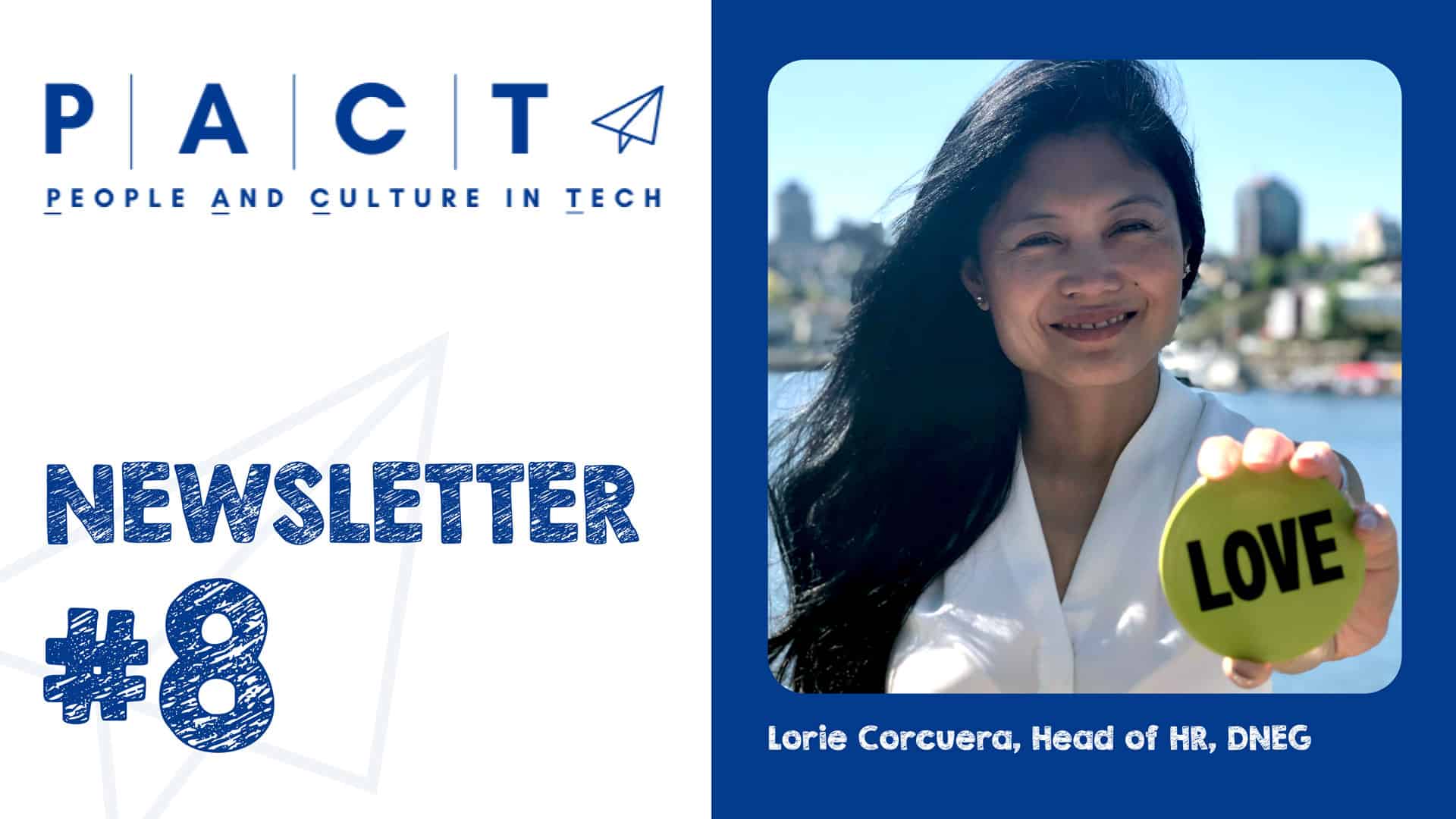The Power of Compassionate Leadership and What it Means for Your Employees
Jessica Galang

Workplace mental health is in the spotlight more than ever. As we begin to ease out of the pandemic, HR leaders are being asked to help lead meaningful conversations within their organizations and to help create a supportive culture for workplace wellness.
Lorie Corcuera is Head of HR (Vancouver and LA) for DNEG, one of the world’s leading visual effects and animation studios for feature film and television. She is also an in-demand speaker on the power of self-compassion – or self-love – in the workplace and the game-changing impact of leading with love. Lorie shares her deeply personal experience of starting her new role at DNEG during the pandemic and the impact it had on her mental health until she changed her mindset and approach.
Lorie joined DNEG in October 2020 after spending 10 years leading her own consulting company, SPARK Creations. She brought with her a wealth of knowledge and experience, including the findings of the first BC Workplace Culture Scan Report, which she and her colleagues researched and published in May 2020 under the SPARK umbrella.
“For about two years, we studied 30 companies, gathering their feedback on what made their culture unique. The intention of the report was to share data trends, culture stories about companies who are doing a lot of great work,” she explains. “The number one trend focused on the mental health and well-being of employees, and that was before the pandemic. Workplace burnout and stress was already a critical issue with one in five people experiencing mental health challenges.”
Even with Lorie’s extensive knowledge in workplace mental health, when she started her new job with DNEG, she found that the tools and resources she used to build her resilience and protect her mental health “went out the window”.
“It’s a different experience when you are onboarded and everyone is working remotely. I’m an extrovert and thrive on meeting people, being in an office and feeding off each other’s energy.”

In reflecting on her personal experience, Lorie says that she learned that even when we have the tools and we know what we need to do to take care of ourselves, we can still get into a situation by putting unrealistic pressures on ourselves to perform, connect with people and prove ourselves, especially in a remote environment.
“My need for connection became greater and I didn't take care of myself and set boundaries. I had Zoom fatigue and felt burnt out within the first two months of starting my job,” she remembers.
Building off both her own experience as well as her years of working with HR leaders, Lorie now offers the following tips to encourage wellness:
- Connecting and building relationships with your team is important but you need to also set boundaries. People overbook themselves on Zoom, running from meeting to meeting all day long and it is mentally exhausting. Build in breaks and time away from the screen, including Duvet Days, a day where you can take a mental health break to recharge and reset.
- Practice self-compassion. Let go of trying to be perfect or to please others. It’s okay not to be okay. Allow yourself to just be and take the time to listen to what your body and mind needs in the moment.
- Surround yourself with others who can look out for you. When you’re experiencing the onset of burnout, it’s hard to notice when you’re in it. To get through the low days, find people you can ask for support. There’s strength in asking for help and as humans, we are stronger together.
There are also steps that HR leaders can take to help create a work culture that values and protects mental health and builds resilience. Ideas include empowering employees to be very clear on their core values so that they can make aligned choices, creating a sense of belonging where people feel heard and cared for, and protecting routines that keep employees grounded, whether it’s exercise, meditation or something that is relaxing at the end of the day. A morning ritual is a key component to strengthening Corcuera’s resilience.

With the tech sector growing rapidly and moving quickly to fill positions, there is a heightened urgency to ensure mental health remains top of mind as restrictions ease.
“There is a need to be flexible and open over the next six months to a year as things evolve in terms of return to work. People will adapt differently and not everyone is going to be ready to go back to an office. At DNEG, we have a remote leadership program that we are using to retrain our leaders to really take the time to get to know and fully support their team members.” She adds that when companies can personalize the employee experience, that will be reflected in increased productivity, improved mental health, and overall wellbeing and inclusivity.
There is also the need for leadership to walk the talk.
“HR professionals can lead by example. I learned that quickly because I would check in on my team and say how are you feeling? Did you take your lunch? And then they'd see me work through my lunch, on weekends and not taking any vacations or mental health days. We need to be aware of how we are showing up for ourselves and our teams, and if they see it and begin modelling healthy behaviour, it can spread throughout the organization.”
Lorie is also passionate about encouraging HR leaders to be self-compassionate with themselves as it will ultimately improve the employee experience.
“Instead of saying leading by example, I encourage leaders to love by example, which starts with loving ourselves more so we can love others more completely. If we just focus on serving and supporting others without taking care of ourselves, we start to lead from an empty cup. We become drained and sometimes resentful. Becoming a more self-compassionate HR leader or focusing on bringing love in the workplace is about creating a more human workplace. To be human is to love and to love is to be human.”
BACK








